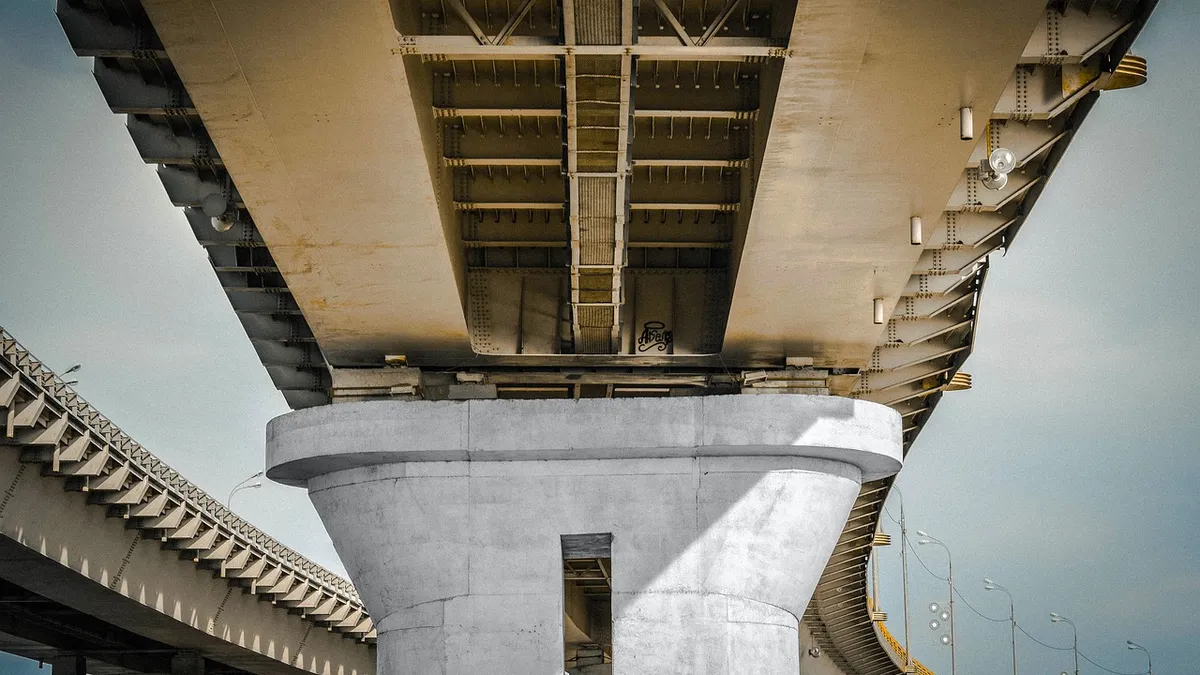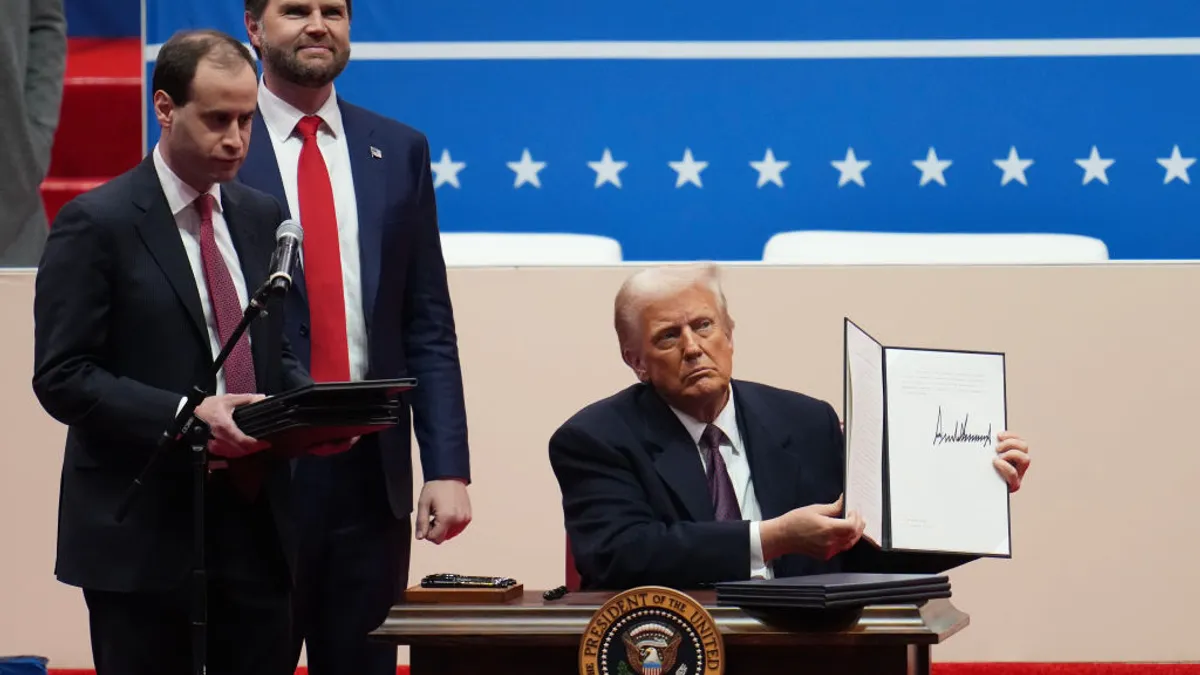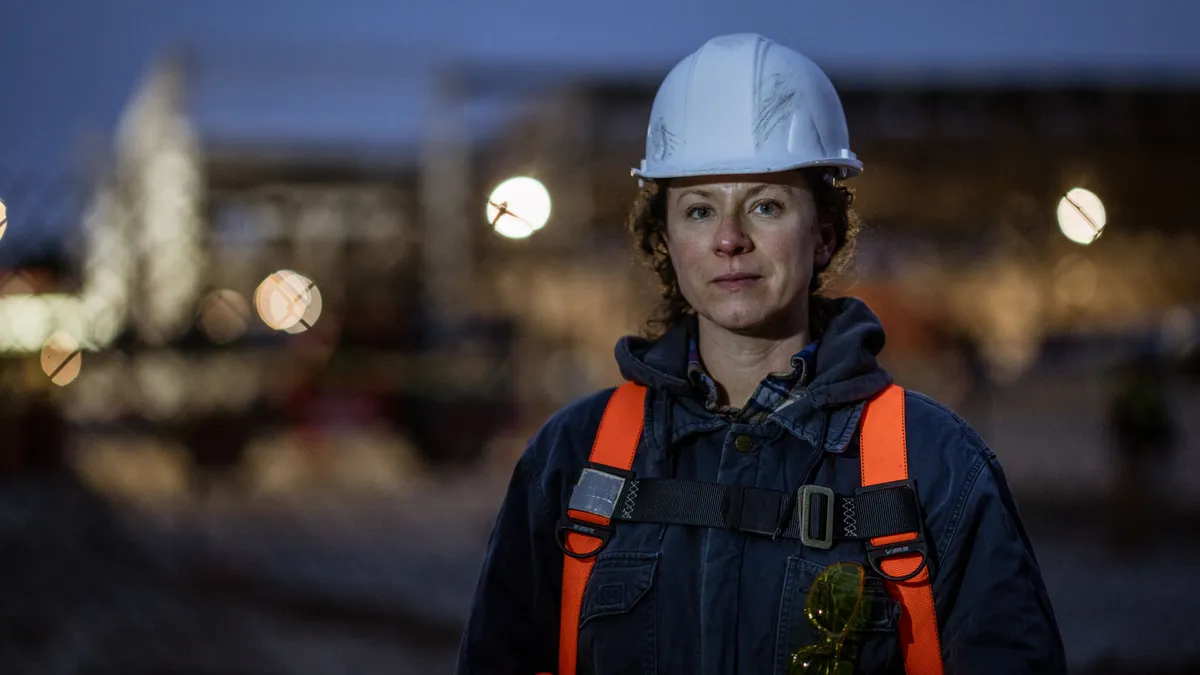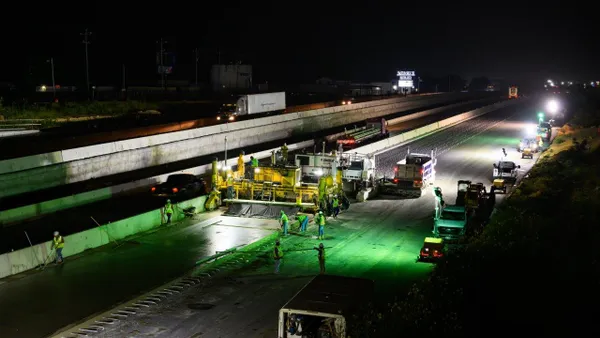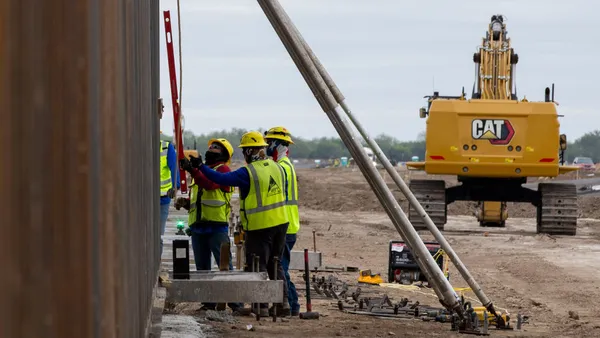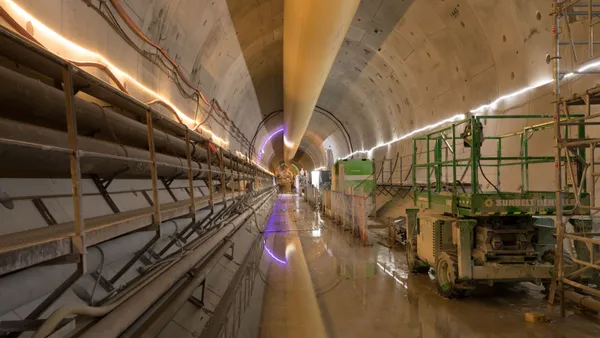Dive Brief:
-
A 2019-2020 California Department of Transportation (Caltrans) budget of almost $14.7 billion — up more than 50% from 2017-2018 — is helping to repair and repave roadways across the state, including those in the San Francisco Bay area, the East Bay Times reported.
-
The 12-cent-per-gallon state gas tax increase passed in 2017 will contribute approximately $5.5 billion statewide this year, allowing Caltrans to repair or repave more than 17,000 miles of road surfaces in the next eight years, as well as fix 500 bridges and 55,000 culverts. The tax will fund a nine-year paving program in the City of San Jose, California.
-
Since the new gas tax was enacted, it has paid for $100 million of road projects in the Bay Area and now local crews are prepping the highways and other infrastructure there for the upcoming winter. Statewide, Caltrans has completed 102 projects funded by the new gas tax and has almost 470 planned or underway.
Dive Insight:
When former California Gov. Jerry Brown proposed the 12-cent gas tax back in 2017, it was in support of a $52 billion state infrastructure program intended to take on the repairs and maintenance of the state's roadways and bridges as well as invest in public transportation. At the time, the state estimated it had a $59 billion backlog of highway and transportation-related repairs.
At the federal level, lawmakers have been reluctant to raise fuel taxes, most likely for fear of voter backlash, even though the taxes haven't been raised since 1993. These per-gallon taxes — 18.4 cents per gallon for gasoline and 24.4 cents for diesel — feed into the Federal Highway Administration Highway Trust Fund, which state DOTs rely on every year to help pay for their surface transportation projects. If the fund doesn't find an additional revenue stream — or a bigger one from higher gas taxes — it could become insolvent.
However, unlike the federal government, states like California and, most recently, Illinois have been willing to raise their taxes to pay for much-needed highway and other repairs. In order to fund a six-year, $45 billion state infrastructure construction program, Illinois raised its motor fuel tax from 19 cents to 38 cents, and increased the special fuels tax on diesel fuel, liquefied natural gas and propane from five cents to 7.5 cents. With that extra money, the state will be able to sink more than $33 billion into new roads and bridges, infrastructure rehab and mass transit and another $4.4 billion into other state construction projects.


